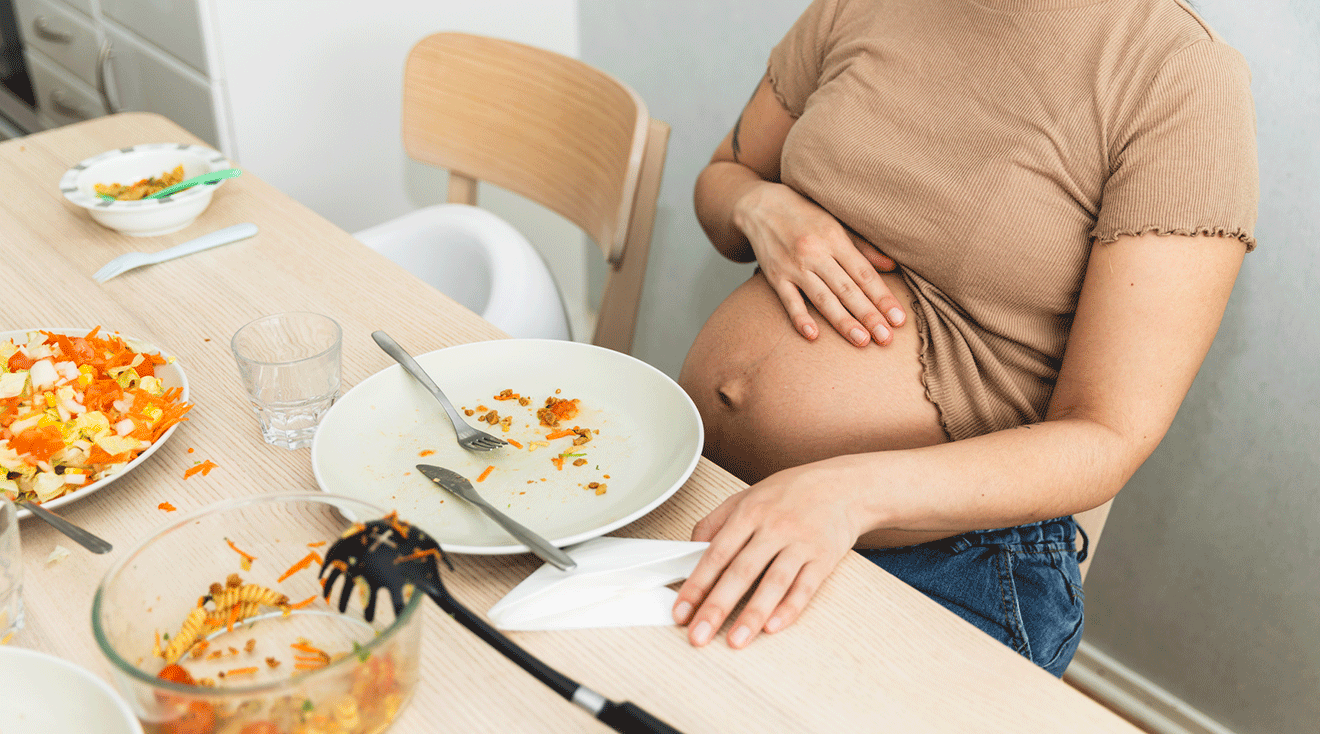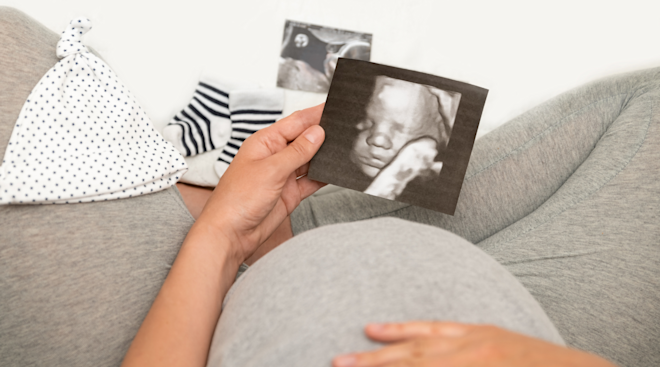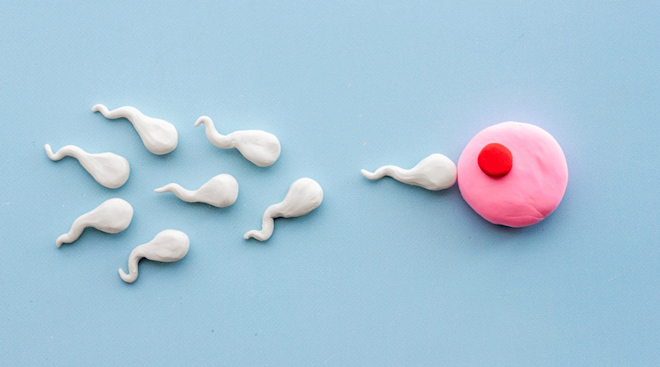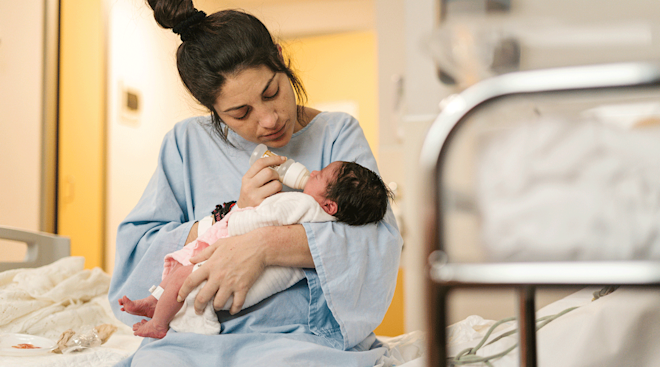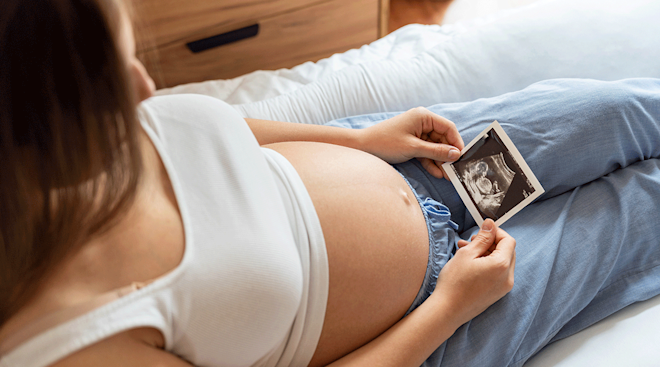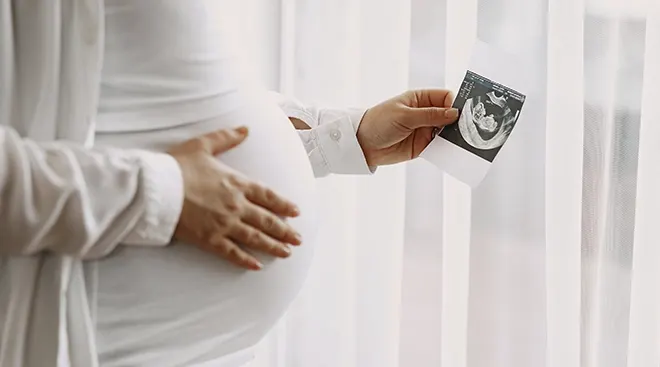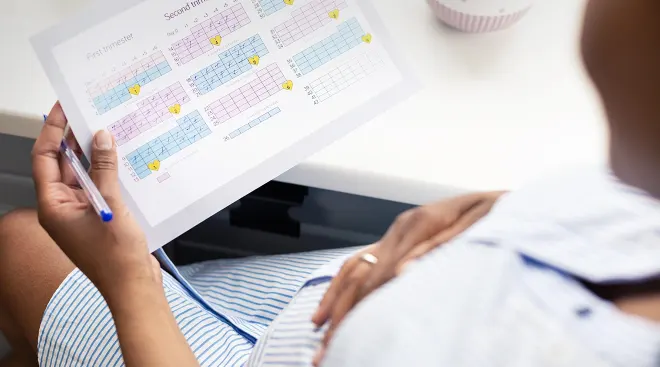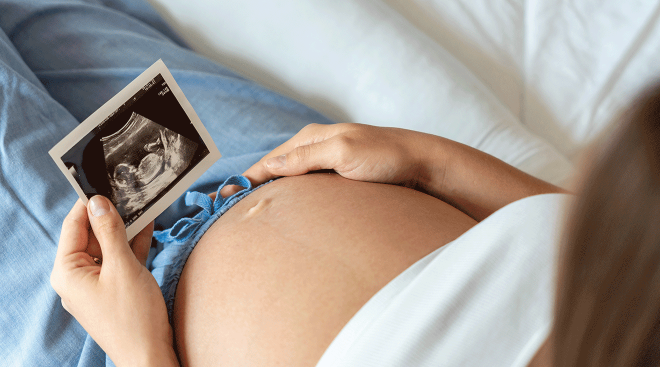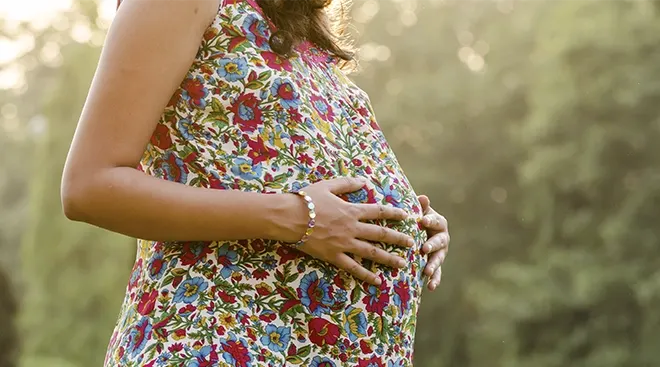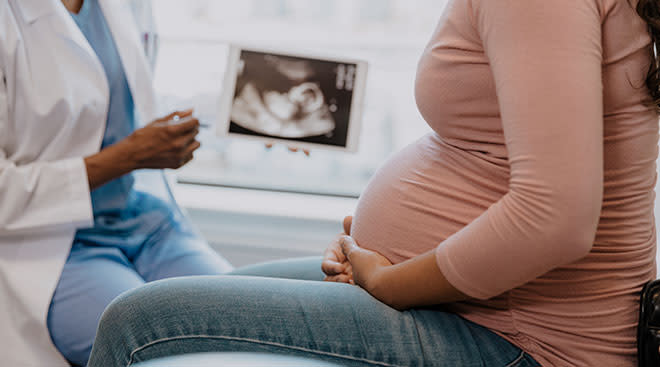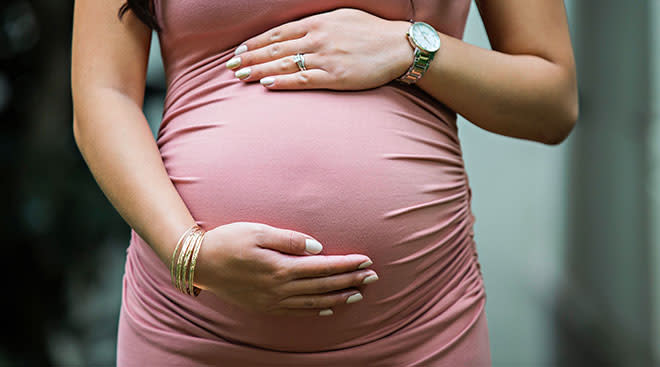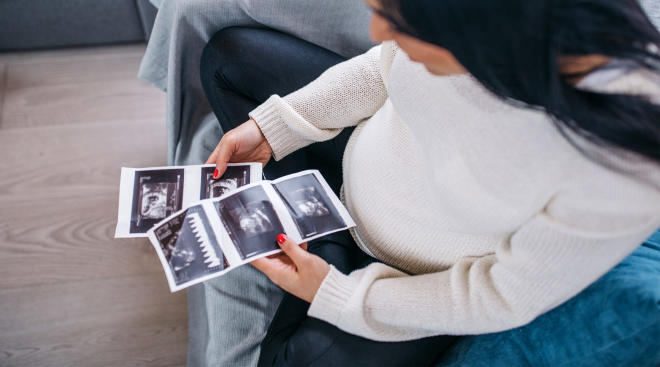Do Babies Eat, Sleep, Pee and Poop in the Womb?
If only your belly had a peephole, you could watch baby develop in real time. Of course, for the next several months, your window into your womb will be limited to blurry ultrasound scans, pretty much the pregnancy pregnancy equivalent of movie trailers. So what’s actually happening behind the scenes? Do babies poop in the womb? Do they pee in there? How do they eat? To flesh out the full scope, here’s the 411 on what babies are up to while they’re busy growing inside you.
Although baby isn’t actually physically eating, they are taking in nutrients, thanks to the placenta. “When a baby grows inside the uterus, the placenta grows as well,” explains Catherine Caponero, DO, an ob-gyn at Cleveland Clinic. Attached to the uterus, this temporary organ channels amino acids, fatty acids, glucose and other nutrients from your blood supply to baby through the umbilical cord, explains Meleen Chuang, MD, chief of service in obstetrics and gynecology at NYU Langone Hospital Brooklyn.
After the first trimester, your baby will start to produce urine, says Chuang. But it’s not the yellow liquid we typically associate with pee. Instead, their urine is mostly water. When it leaves their body, it becomes amniotic fluid, adds Caponero. Along with protecting baby and their umbilical cord, this pee-turned-amniotic-fluid helps regulate baby’s body temperature and contributes to the development of their muscles, bones, lungs and digestive system, she adds.
If you’re grossed out by this prospect, you can relax. Generally, healthy babies don’t poop while they’re inside you. Instead, the umbilical cord and placenta funnel out their waste products, explains Caponero. That said, as early as 12 weeks, babies do begin forming their first poop, or meconium, she adds. A thick, sticky blackish-green substance, it’s made up of cells, bile and other digestive materials, notes Chuang.
What if baby poops meconium before birth?
Babies poop meconium in the womb in only five to 20 percent of births, estimates Chuang. One possible cause is a mature gut, which is more likely if they’re born past their due date, explains Caponero. But pooping meconium before birth can also be a sign baby has an infection or is in distress, she adds. Plus, when meconium is present in the amniotic fluid, there’s a risk baby could ingest it, which could make it harder for them to breathe. If your provider has any concerns, they’ll likely ask a pediatrician to monitor baby’s first breath. Then, if necessary, they’ll suction baby’s airways to prevent meconium from reaching their lungs.
Sometimes it may feel like baby is having a rager inside your belly; other times they’re completely quiet. Those moments of calm may very well be attributed to baby’s sleepy time. Yes, they do snooze in the womb. In fact, research shows that’s probably how they spend the majority of their time.
You might be able to predict baby’s activity patterns. A 2010 study monitoring fetal heart rate found that fetuses have regular sleep and awake windows.
Babies should get overtime pay: they do more than their full-time “job” of developing into people. Along with sleeping, they move amidst the amniotic fluid, which helps their muscles and bones develop, says Caponero. And don’t be surprised if you see your little one sucking their fingers, stretching, kicking or wiggling their fingers and toes during ultrasounds, adds Chuang. If your doctor tells you they’ve been caught in the act of hiccuping, take comfort: it’s a sign of proper brain, lung, and spinal cord development, says Caponero.
Frequently Asked Questions
Do babies drink amniotic fluid?
Yes, amniotic fluid will be your baby’s first drink, says Caponero. (Breast milk is quite the upgrade!) The coordinated movement of their muscles to swallow this liquid will help their lungs and digestive system develop.
Can a fetus taste Mom’s food in the womb?
You might think that baby kicks in response to the delicious sweetness of your morning OJ or because they really, really like carbs (like mother, like child), but that’s only partially true. Research shows that changes in Mom’s blood sugar affect fetal activity, so eating anything could affect baby’s movement. That said, baby’s tongue and taste buds start developing at four or five weeks of gestation and will be fully formed by week 30, according to Caponero. Research suggests that babies swallow more amniotic fluid when their moms eat sugary foods. (Yes, the sweet tooth can start early!) In other words what you eat might influence baby’s future food preferences, says Caponero. So, load up on veggies, fruits and whole grains (along with your favorite chocolate ice cream, of course!).
Until someone invents a belly cam, the development of your baby-to-be will be a bit of a mystery. Although the specifics of their evolution might be as fuzzy as an ultrasound scan, Chuang says to remember that “baby will develop and experience a range of sensations and movements while in the womb, preparing for life outside.” And before you know it, baby will be cooing, sighing, sleeping and even passing gas right in front of you.
Please note: The Bump and the materials and information it contains are not intended to, and do not constitute, medical or other health advice or diagnosis and should not be used as such. You should always consult with a qualified physician or health professional about your specific circumstances.
Plus, more from The Bump:
Catherine Caponero, DO, is an ob-gyn and assistant professor at Cleveland Clinic. She earned her medical degree at Lake Erie College of Osteopathic Medicine.
Meleen Chuang, MD, chief of service in obstetrics and gynecology at NYU Langone Hospital Brooklyn. She earned her medical degree from SUNY Stony Brook.
Learn how we ensure the accuracy of our content through our editorial and medical review process.
Navigate forward to interact with the calendar and select a date. Press the question mark key to get the keyboard shortcuts for changing dates.
































